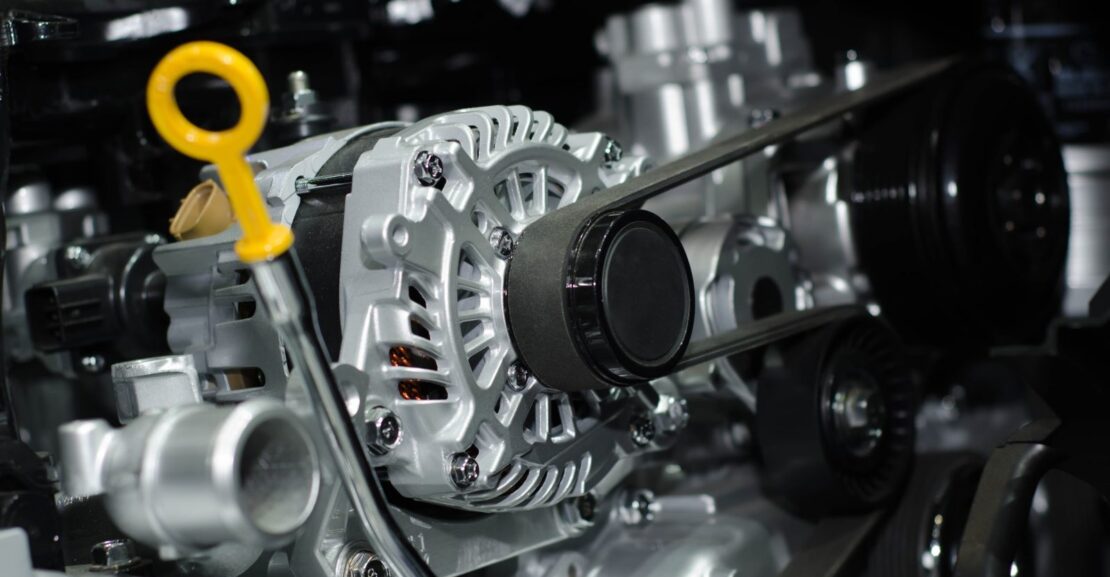Have you ever tried to start your car engine and you just hear a few clicks but your car doesn’t turn on? The first thing to run through your mind is that your battery has started going bad. However, that may not necessarily be the case. The concept of a bad alternator and a bad battery have often been interchanged.
In most car battery cases, a faulty alternator is often the problem. Read further to know the signs of a faulty alternator.
Brief Summary of an Alternator
A car’s alternator is a generator of electric current and a very vital part of the charging system. Except for a few hybrid vehicles, every car with an internal combustion engine has an alternator. The alternator charges the battery while an engine is operating and provides extra electricity for the car’s electrical systems. The engine is attached to it, and a serpentine belt powers it (drive belt).
Basically, the alternator keeps your car’s battery charged, enabling you to start your vehicle and operate electronic features like the radio and headlights.
Signs of a Bad Alternator
Dead battery
A dead battery may not always be an indication that your alternator has gone bad. You may have left your light on overnight and it drained the battery eventually.
Or the battery is an old one and has gone bad and needs replacements. When the engine is running, a bad alternator won’t adequately charge the battery, resulting in a quicker than usual discharge of the charge. It is also pertinent to note that a bad alternator can kill your battery even if it wasn’t the problem in the beginning.
A quick way to decipher if it is your battery or alternator at fault, is to jumpstart the car. If your car runs after being jump started, your battery may need to be replaced soon. If the car dies again soon after being jump started, it may indicate that your alternator isn’t providing enough power to the battery.
Read Also
Dim or overly bright headlight
It is the responsibility of the alternator to supply charge to the electrical needs, when it goes bad you will notice a change in the brightness of your headlights.
It either goes too dim or too bright unlike the usual. This is really obvious when headlights are on at night, but also noticeable in dash lights and the centre dome light.
Even more clearly indicates a problem if the lights get brighter as the RPMs increase.
Flickering light
Similar to the dimness of lights, another symptom of a bad alternator is flickering lights. Your interior light may not go dim, however you may notice it flickering.
The lights keep going from bright to dim constantly. Also If your interior lighting and dashboard lights dim progressively with the engine on, this indicates insufficient power from a malfunctioning alternator.
Slow electrical Accessories
Slow or dysfunctional accessories are sometimes caused by an alternator that isn’t producing enough power to your car’s electronics.
If you observe any electrical oddities, for example your windows seem to be taking longer than usual to roll up or down, or even if your speedometer and other gauges start acting strangely you should have that particular feature examined.
However, if you’re dealing with numerous problems at once, it’s unlikely to be a coincidence. One of the most frequent places for electrical issues is your alternator, and you might not even be aware that your car is using less power until you put more strain on the system by turning on an interior light or adjusting your windows.
Strange noises or sounds
You may begin to hear some noises coming from your car. Cars make all sorts of strange noises. If you hear a growling or whining noise coming from under the hood of the car, this could be an indicator of a faulty or bad alternator.
A lack of charge might be caused by the serpentine belt, which has likely stretched with time and may no longer be spinning the alternator pulley efficiently. Usually, this causes a screeching sound. The internal bearings, on the other hand, can deteriorate and make a growling or grinding sound.
A stalling engine
A car that won’t start is almost always the result of a dead alternator. But before things reach that stage, a number of additional issues could arise. An alternator that is broken or dying might only function intermittently. As a result, even with your engine running, the alternator might not be able to keep your battery fully charged.
Your automobile can stop out as a result at strange moments. The fuel injectors, which depend on electricity to function, are frequently the immediate cause of such stalling. The fuel injectors may not fire, resulting in an engine stall, if a defective alternator is unable to maintain a steady charge in your battery.
If you notice any of these signs, ensure to check to see if your alternator is going bad or has gone bad completely. Save yourself and your vehicle the stress of stopping every 5 minutes on the road. Consult or Hire a Mechanic here for assistance.



